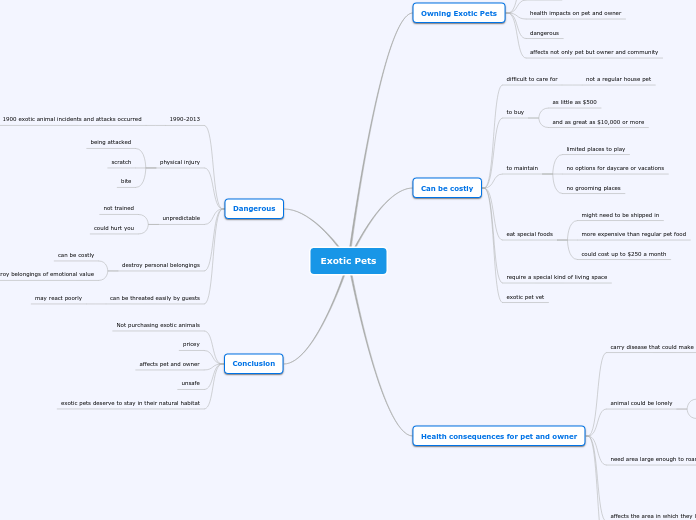Exotic Pets
Owning Exotic Pets
not fair to those creatures
expensive
health impacts on pet and owner
dangerous
affects not only pet but owner and community
Can be costly
difficult to care for
not a regular house pet
to buy
as little as $500
and as great as $10,000 or more
to maintain
limited places to play
no options for daycare or vacations
no grooming places
eat special foods
might need to be shipped in
more expensive than regular pet food
could cost up to $250 a month
require a special kind of living space
exotic pet vet
Health consequences for pet and owner
carry disease that could make owner ill
Examples: Monkey pox and Salmonellosis
90% of reptiles carry salmonella
93,000 cases from reptiles in the US in a year
animal could be lonely
need other animal companions
might not have enough space
need area large enough to roam and play
can become angry and lash out
sometimes they're beaten, declawed, or remove their teeth
animals can vary in size
affects the area in which they live
could have limited resources for food
can have parasites that sicken that area
can have trouble adapting to new climate
Dangerous
1990-2013
1900 exotic animal incidents and attacks occurred
physical injury
being attacked
scratch
bite
unpredictable
not trained
could hurt you
destroy personal belongings
can be costly
can destroy belongings of emotional value
can be threated easily by guests
may react poorly
Conclusion
Not purchasing exotic animals
pricey
affects pet and owner
unsafe
exotic pets deserve to stay in their natural habitat
